Why Men Learn to Burn Instead of Cry
Boys aren't born angry
To the deep thinkers,
Welcome to the Deep Thinkers Newsletter: A collection of essays dedicated to going beyond the surface.
If you’re new here, check out the Deep Thinkers archive.
The first law of thermodynamics says that energy can neither be created nor destroyed—only converted to another form. What if the same is true for our pain?
When a child's sadness isn't seen, it doesn't simply disappear. It shape-shifts. It transforms into something else.
I am always at war with the nostalgic tug of my childhood. Back then, my greatest concern was whether I would make it home in time to catch my favorite afternoon cartoons, or if my buddy who lived a few houses down was grounded again and couldn't come outside.
But in that nostalgia lives something darker. Memories I wish would vanish. The kind that are triggered by a word, a place, a scent.
How did I become so angry?
It’s a question that demands attention.
It's a question that won't let me rest, and the answer lies in my past. I can’t erase the mental remnants, so I must understand them. Only then can I locate the source of the rage that’s always simmered just beneath the surface.
I’ve never been a violent person, but you don’t have to be violent to be consumed by anger. And I’ve been angry for a long time.
But this wasn’t always the case. I was once tender-hearted. More of a vulnerable soul whose eyes would well with tears whenever he felt misunderstood or mistreated.
That tenderness, though, wasn’t welcomed in my home. In fact, it was mocked and ridiculed. In time, I began to feel helpless—and ashamed—of my emotions. And so, like many boys in similar situations, I learned to bottle it all up. To repress. To retreat inward. I learned to hate my own sorrow. I hated how heavy the sadness felt because it made me feel out of control.
But the one emotion that seemed to offer a sense of control was anger. Spite. Rage. Contempt. All of it simmering under the surface—growing stronger, burying my true feelings deeper into the recesses of my soul.
When you grow up in a strict household, or one run by a patriarchal tyrant, you either lose your mind, lashing out at any and everyone in your way, or you learn to survive by repressing how you really feel. You learn how to lie. You learn how to wear the right kind of mask.
Honestly, repression was all I knew. My folks played all the hits. "Negative emotions" (i.e, sensitivity or vulnerability ) were either labeled as rebellious or blamed on the spirit of the Enemy (if you know, you know). Boys didn’t cry. Depression wasn’t real. You were told to toughen up—because “nobody’s even hit you, yet” and if you did cry, well, they’d “give you something to cry about.”
To survive, I learned to “toughen up.” I tried to shove aside how isolated I felt. But you can't just snuff out intense emotions and expect them to disappear into the ether.
Besides, toughening up didn’t come naturally to me.
While I believe that everyone, not just boys, needs a healthy dose of grit to endure an uncaring world, you don't toughen up a child by ignoring their pain and leaving them to figure it out on their own.
Because the tough exterior they construct will eventually become so sharp that it cuts even the people they grow to love.
You’re Not Strong Enough
One day, when I was in second grade, my best friend and I noticed a commotion and a crowd in the back of the bus.
Now, anyone who's had the displeasure of riding a public school bus knows it can be a real free-for-all. The back of the bus? Anarchy.
As the pandemonium reached a fever pitch, someone called back to us.
“Josh, it’s your brother—they’re whupping him!”
I felt a chill run through my body as my friend and I—two skinny seven-year-olds—tried desperately to push through the barrier of kids between us and the back of the bus.
We finally reached a point where we could see what was happening—four fifth graders were jumping my friend’s older brother. They were beating on him—badly. A feral energy took over as my friend and I clawed through the crowd, but a few older kids were holding us back. So, we were forced to watch. Helpless. Confused.
Why isn’t somebody doing something? I thought.
I learned later that those kids jumped my friend’s brother because he’d finally decided to stand up to them after being picked on for months. He finally stood up for himself, so they jumped him.
The next day, my friend wasn’t at school. I was called into the principal’s office, where she told me they were “looking into the incident.” She also told me my friend’s parents were pulling him and his brother from the school and moving away immediately.
I never saw him again.
My childhood best friend, gone. Just like that.
Not my teacher, not the guidance counselor, not my parents—nobody—sat me down to help me process what had happened. I simply had to move on.
This was the first memory I have of feeling a deep sense of grief that would eventually morph into rage. The anger hadn’t consumed me yet. But this was the seminal moment, the foundation laid for the fortress I'd continue to fortify throughout my life. By my early twenties, that fortress became an impervious citadel. The gentle boy, forced to handle his emotions alone, remained protected there.
Sadness turned to rage. Vulnerability to shame.
I felt rage for those who'd hurt my friend's brother. I felt shame for not being strong enough to do anything about it.
And if someone had sat me down, just one adult, and taken the time to help me process what I had gone through, what I'd seen, then maybe—just maybe—I could've avoided so much unnecessary pain later in my life.
Be a Man
The wounds left from emotional repression run deeper than one boy’s sadness; it’s stitched into the fabric of what all boys are taught to become within our society.
Repression is our inheritance. Anger, our only permission.
Boys are taught, or rather, encouraged to disconnect early on. Angry outbursts are seen as boys being boys, while openness is viewed as a weakness, and by extension, unmanly.
Don't show how sad you are. Don't get too excited.
Don't laugh too hard or smile too wide.
And always remember: Real men get mad.
Within the space of popular culture, we idolize men who are brooding and full of rage. Men who command respect and admiration through their infliction of pain. Whether that be characters like Batman, The Hulk, Wolverine, or Darth Vader, the message is clear: your pain and grief only matter if you can turn them into power.
My mother, whom I love dearly and who has apologized for the wounds she inflicted on me when I was a boy, indoctrinated me with patriarchal beliefs just as much as her ex-husband, who was the central adult male figure in my life.
Her religious devotion, rooted in patriarchal ideas, filtered into how she “dealt” with me and my emotions. There was zero space for emotional nuance—let alone emotional needs or expression. And that meant when there was conflict, when I didn't feel heard, the lesson I learned was how to tuck inconvenient emotions away instead of actually working through them.
I learned the art of moving on without resolution, soon becoming cynical toward the world, toward love, toward connection, and toward community.
I’ve been cold and nonchalant toward romantic partners, as well as paranoid and distrustful. In a world that rewards emotional distance in men, I became skilled at appearing unbothered—even when I was anything but. However, what looks like composure is often just grief in armor.
What Patriarchy Steals from Boys
bell hooks wrote in her book, The Will to Change, about the patriarchal system:
Patriarchy is a political-social system that insists that males are inherently dominating, superior to everything and everyone deemed weak, especially females, and endowed with the right to dominate and rule over the weak and to maintain that dominance through various forms of psychological terrorism and violence.
The book explores how boys who feel deeply, who are gentle and tender, become men who seek control, validation, status, and false adoration. All fueled by the unresolved pain from being dismissed or unloved properly when they were boys. All of it ties back to the overarching mentality that keeps this cycle in motion—patriarchy.
This matters because I've learned the hard way that you can't return to the healing process from a place of rage. It just doesn't work. Anger was my survival strategy, but I saw it as a superpower.
When we, as men, are not permitted as boys to process our sorrow, then the only way we know to keep moving is by using rage as fuel. Unfortunately, we can’t keep the cap on that rage forever. Eventually, it detonates and impacts those in our lives, even and especially, those who we care about and who care about us.
This is the emotional legacy most boys share. But I don’t want to pass it on. I don’t want my future children to ever feel ashamed for expressing how they feel. I don’t want my future son to think the only way he’ll survive in the world is with anger as his only companion.
To break this cycle, I must travel inward and tend to the damage within. I must face the architecture of my own emotional survival. The fortress I built to protect myself can’t simply be demolished in one fell swoop. Smashing it to bits won’t solve anything.
Rather than trying to seize control of the fortress (as anger would encourage me to do), I instead want to make my way through each room. To look back on the moments that led me here, looking for and embracing the tender-hearted boy who barricaded himself in when he understood he had no choice but to protect his emotions because nobody else was going to do it.
In a way, that's what my writing is—the journey inward. The reading, reflection, and writing are the process of going through each room of the fortress.
This is the labor of becoming whole again. Not by tearing it all down at once, but by returning gently to the rooms I locked long ago, and finally turning on the lights.
Creating A Safe Haven
What does it mean to finally feel safe enough to tell my truth?
Everything.
The self-recognition that creative expression offers is the ultimate embrace—one that stretches across time and space. To feel this safe is to feel hopeful. Strong. Proud. The boy who grew up confused, angry, and afraid—he found his way here. He grew to be the man who can finally make sense of his emotions and now uses his words to express what he once couldn't.
It all begins and ends with the will to share my stories. To say the things I couldn’t even form into words before.
I’ve always felt the gap between who I had to become to survive and who I truly am, and I’ve found the only way to the other side is through reconnection—with the wounded child, with community, with a better understanding of my emotions, and what they can teach me.
As with most of my written works, I wonder how I could ever impact the world. How do I give back to others?
This thought brings me to another bell hooks quote:
Only a revolution of values in our nation will end male violence, and that revolution will necessarily be based on a love ethic.
Society’s depiction of a "real man" can't be erased through the will of a single person. Patriarchal influences on young boys will continue. I know this. But the point isn't to scream from atop a soap box until I’m light-headed. The point is to turn to my sphere of influence, to create the subculture within the culture.
If you have kids of your own, you can create a subculture that they can, in turn, pass on to their kids. You can give them the choice to embrace openness and expression or conform to what society expects them to be—angry and domineering.
The power of choice changes everything.
Healing isn't instant. The sting of what I've gone through doesn't vanish because I've read books or shared my writing online. It's a constant process, and one that is meant as a handoff. It's meant to continue for generations.
If I can keep going, maybe the ripples of what I'm doing now will be felt long after I'm gone.
Loved Anyway
I’ve been loved by people with no obligation to love me. I've wondered why, and someone told me years ago, it's because they've seen someone worth loving—even when I couldn't.
Without the need to be a caricature of a manly man, I have been loved, scars and all. Sad and solemn.
To accept the love I've been given, that's the source of strength I draw from now. It's what allows me to look inward and tell the child within: Your feelings are valid, little one.
I didn’t have the strength or agency to bend things in my favor when I was a child. I couldn’t protect my friend’s brother. I couldn’t do anything about his parents choosing to move away.
But I grieve for my friend today in the way I couldn't back then. My pain was ignored when I was a child, and over time, it turned into spite—then rage. But I don't have to pass it on. I can instead give the sadness a place to breathe. And in doing so, maybe I offer that same chance to someone else.
And maybe that's enough to impact the world.
Enjoying the essays? Consider becoming a paid subscriber to support more thoughtful, in-depth work like this.
Or leave a one-time tip—every little bit helps
Your support, whether monetary or simply sharing this essay, means the world to me.
✍🏾 In Case You Missed It:
Much love,
—Jon ♾️


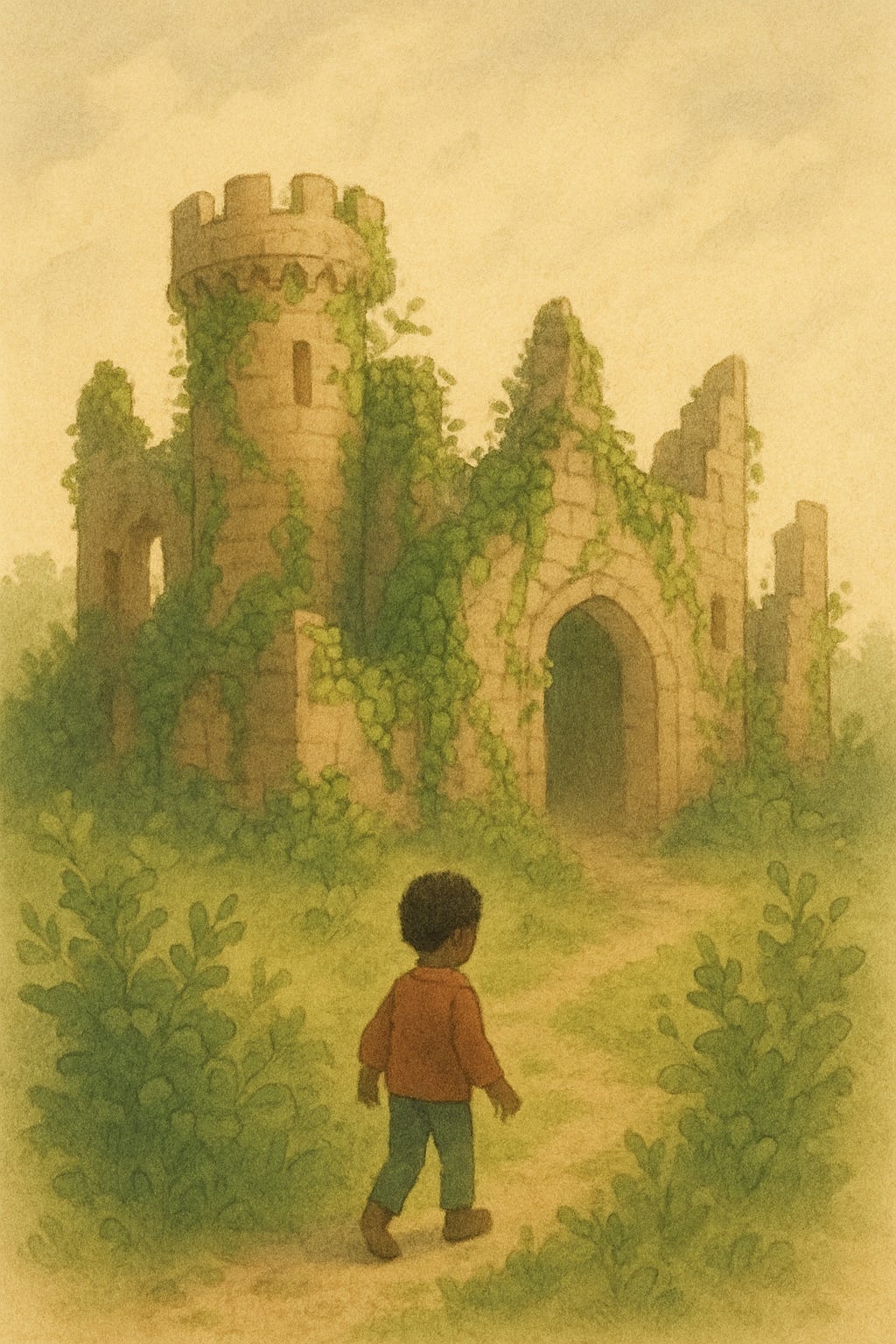
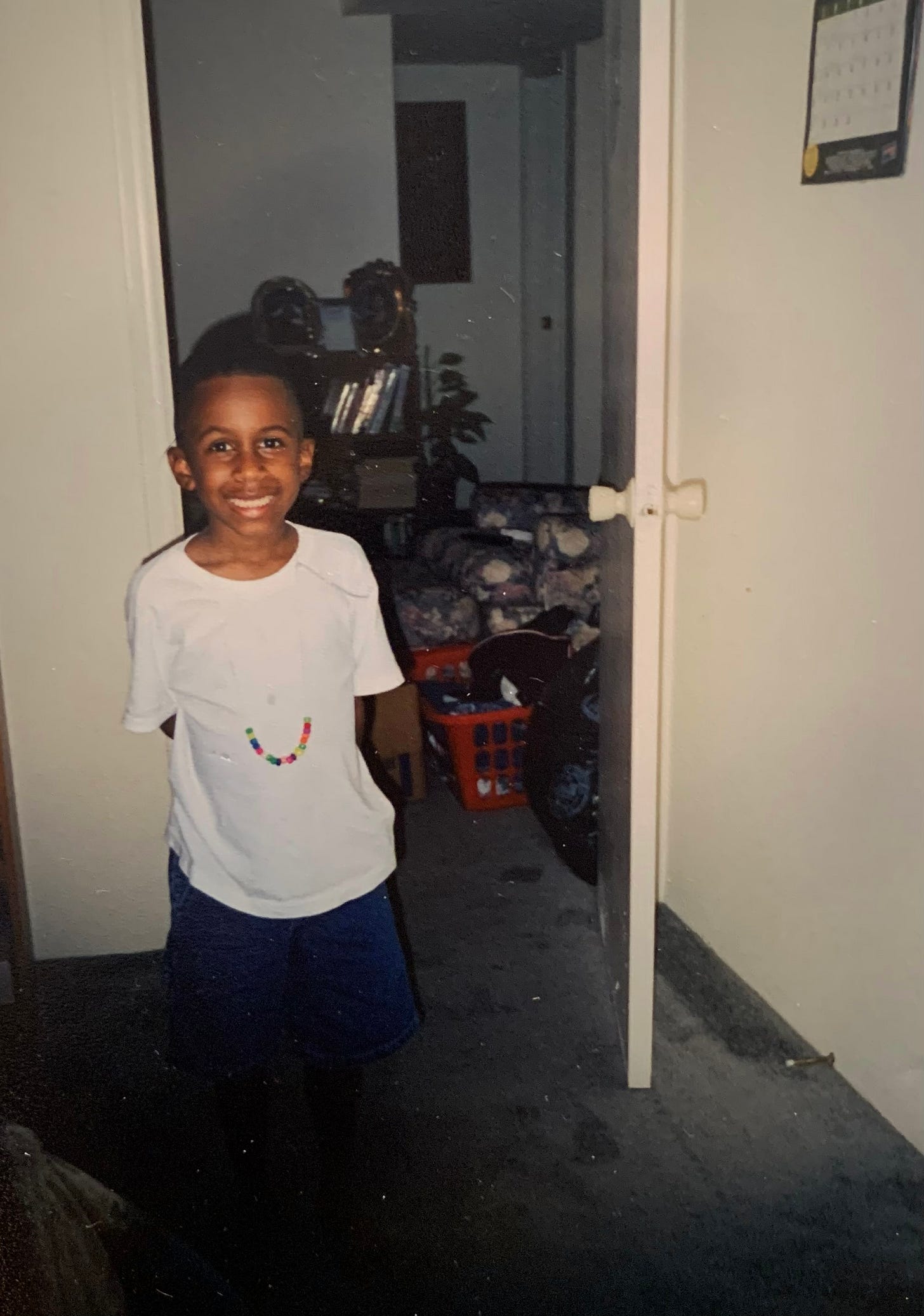
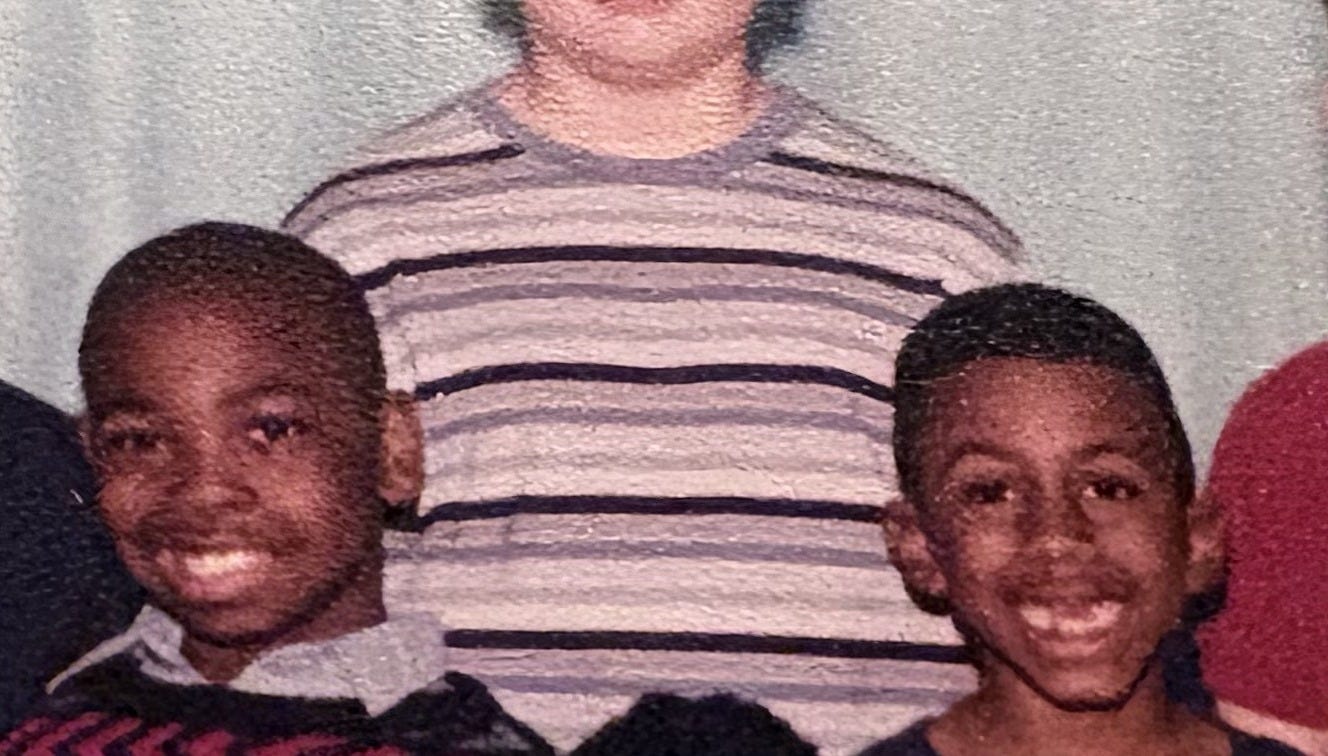

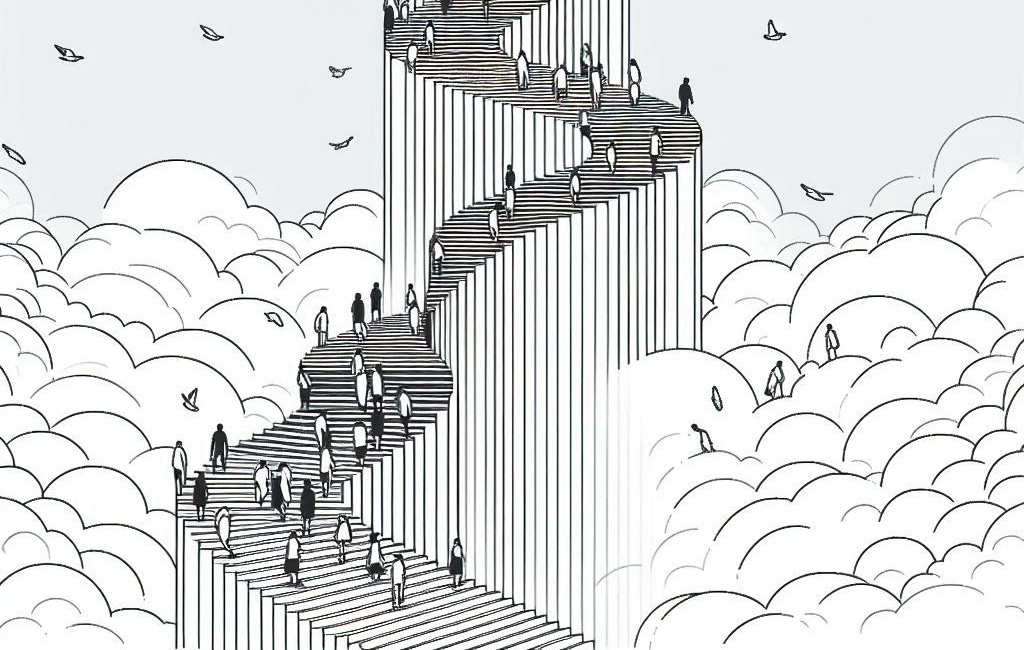
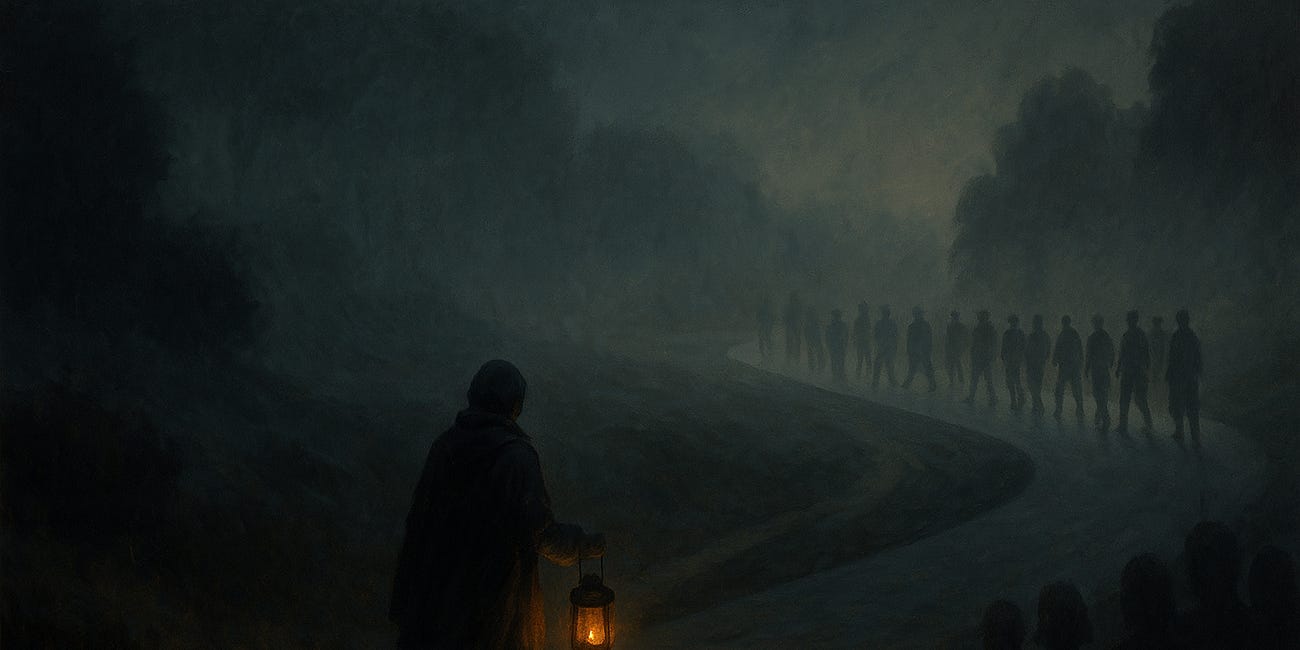
This powerful statement on how human nature gets manipulated just couldn't be expressed any better. As a seasoned feminist and psychotherapist, I have yearned to hear this expression of male reality and how to heal all my life. You have touched something so fundamental to all of us. Emotions have a fairly simple trajectory: painful energy in the being must move outward, either through direct destruction or metabolized into healing and real empowerment. You've cracked the code!
Jon thank you so much for so beautifully expressing what so many can’t. Your vulnerable and honest exploration and healing of your own pain will help so many others who are unable to find the words to describe their own. Also as a parent I’ve often reflected on how my own experience of the world impacted my son growing up. Your words resonate and I know they are reaching so many who need it. Please keep sharing your Deep Thoughts. The world needs them!